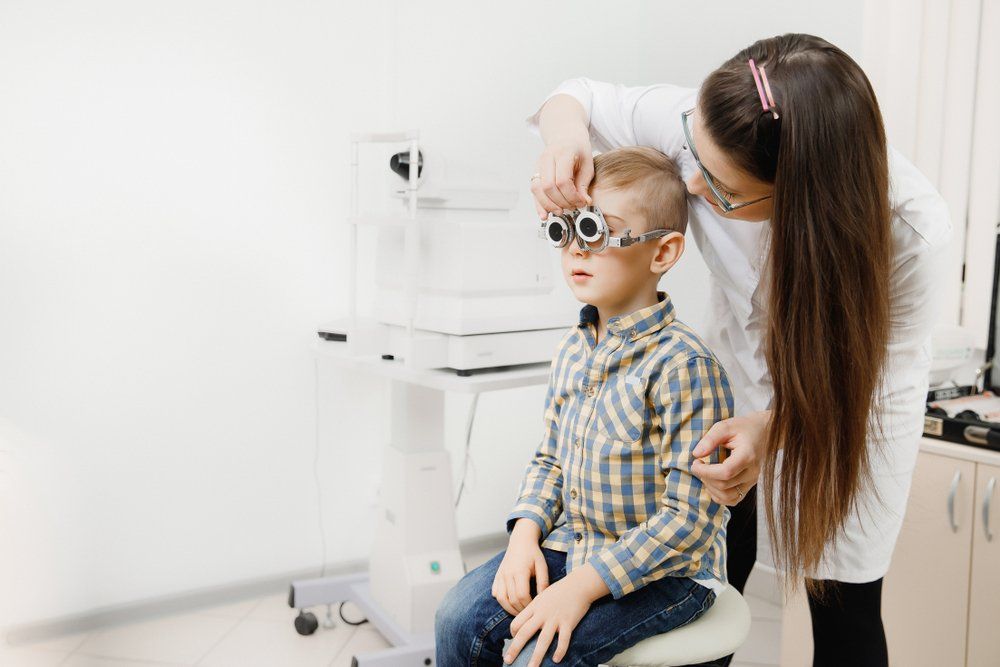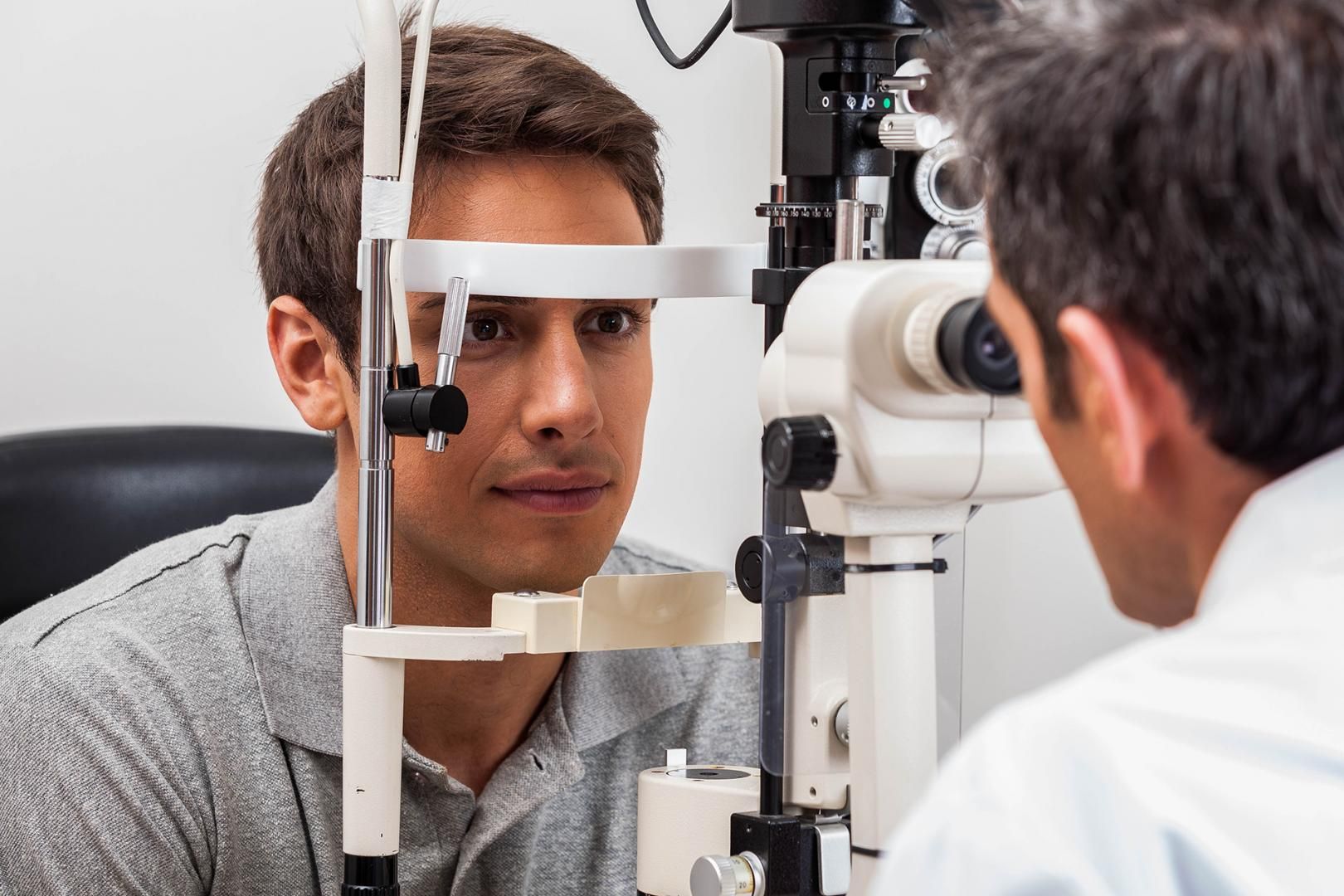Eye Exams at
Different Ages:
What to Expect

Eye Exams
at Different Ages:
What to Expect
You’ve probably heard how important it is to have an eye exam every year, but did you know that the kind of eye exam you undergo may be a little different depending on your age?
At Bristol Family Eyecare, we personalize every single eye care experience, and we believe it’s important to keep you informed every step of the way. Below, we’ll explain some of the ways your eye exam may vary based on age, and why that’s important for your overall eye health.
Infant Eye Exams
Eye problems in infants can lead to developmental issues. Even if you don’t suspect that your baby is experiencing vision issues, it’s important to take them to the eye doctor for their first eye examination when they’re around six months old, as they should be starting to show signs of eye development by that point. Some practices, like ours, participate in INFANTSEE®, a public health program that allows you to get your baby’s eyes screened for free.
During an infant eye exam, an eye doctor will observe how the patient focuses, how they react to light, and check that both eyes are working together as a team by making sure the eyes follow an object, like a moving toy. These simplified versions of adult vision tests help ensure that babies’ eyes are developing normally.
Eye Exams for Children
Children should undergo an eye exam every year, even if the child isn’t quite able to verbalize any issues with their sight yet. An eye doctor will perform a series of tests to rule out any vision or health problems, such as lazy eye (amblyopia), eye misalignment (strabismus), nearsightedness, farsightedness, and astigmatism, in addition to taking a peek inside the eye to observe the child’s retinal health. Our pediatric eye exams include all these tests and more!
Vision problems affect a child’s performance in school, as well as their emotional and social development, so yearly testing is essential to determine that your child has the visual skills they need to succeed. As children get older, their eye testing becomes a little more sophisticated as they can verbalize how their vision appears to them.

Adult Eye Exams, Ages 18-35
A comprehensive eye exam for adults is conducted on a fully developed eye. An eye doctor will test visual acuity by asking you to read from an eye chart, using the results to determine if you’re in need of corrective eyewear or an updated prescription. Your near vision and depth perception will also be assessed, as well as your peripheral (side) vision.
The second facet of an adult eye exam involves conducting a series of diagnostic tests to determine your overall eye health and screen for the very early warning signs of any eye conditions that can affect your vision in the future. For example, the “puff test” measures your eye’s intraocular pressure, or IOP, as increased pressure inside the eye is one of the warning signs of glaucoma.
Adult Eye Exams, Ages 35-50
As you age, you may notice slight changes in your vision. One change that will affect almost everyone during their lifetime is presbyopia, or age-related farsightedness. This will eventually necessitate the use of reading glasses, even for those who’ve never needed vison correction before. Luckily, multifocal glasses and contact lenses are a great option for people who aren’t fond of using “readers.”
It’s critical to sit for a comprehensive dilated eye exam every year so that your doctor can catch signs of eye diseases such as glaucoma, age-related macular degeneration (AMD), diabetic retinopathy, cataracts, and more. If left unnoticed and untreated, they can cause lasting, often irreparable damage.
Adult Eye Exams, Ages 50 and Up
For older adults, eye diseases are a serious concern, and frequent eye exams — sometimes called “well visits” — are recommended. Eye care supplements or lifestyle changes can go a long way to preserving your vision, such as taking eye health supplements to prevent AMD or keeping your blood sugar under control to help curb diabetic eye disease.
Another eye problem you may experience as you age are cataracts: the age-related clouding of the eye’s natural lens. Cataracts are extremely common in older adults and can be safely and effectively removed by way of cataract surgery.
Eye Exams Near Austin, TX
Eye exams may look quite different depending on your age. But no matter how old you are, Bristol Family Eyecare has the outstanding care you need to live with healthy eyes and clear vision. Give us a call at 512-931-3794 today to see how we can help you and your family preserve your eye health!
